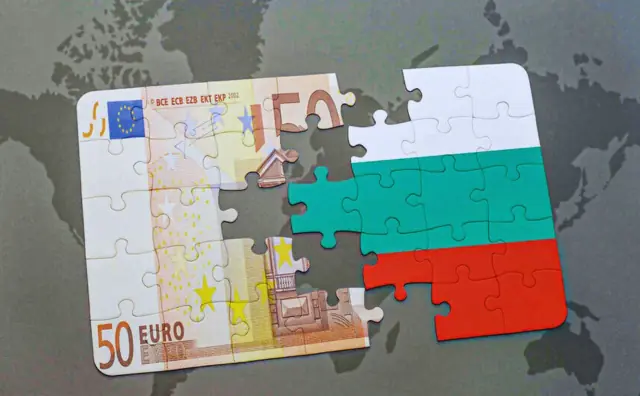
SOFIA – Bulgaria’s transition to the euro is an achievable but demanding process, warned financier and municipal councilor Plamen Danailov of the “There Is Such a People” party.
Speaking to Bulgarian National Radio, Danailov emphasized that while the country’s political decision to join the eurozone is firmly in place, significant challenges remain in meeting the necessary economic criteria.
Danailov noted that the Bulgarian government is preparing to submit an official request to the European Commission and the European Central Bank for convergence reports by the end of February.
This step, he said, demonstrates progress toward euro adoption, even though hurdles persist. He remains optimistic that Bulgaria will receive a favorable response from European institutions.
However, the financier pointed out that the delay in advancing Bulgaria’s eurozone bid does not stem from parliamentary inaction but from the lack of a finalized state budget.
The Council of Ministers has yet to present the budget proposal, which must include financial plans for the National Health Insurance Fund (NHIF) and the National Social Security Institute (NSSI).
Danailov expects these essential financial documents to be completed soon, allowing Bulgaria to take the next step toward eurozone integration.
Challenges and Readiness for Euro Adoption
Danailov underlined that Bulgaria’s goal of entering the eurozone by January 1, 2026, will require intensive efforts from all state institutions.
He acknowledged that the transition would be stressful, given the stringent financial and economic conditions set by the eurozone.
However, he insisted that Bulgaria’s success depends on the functionality and efficiency of its institutions, as a well-managed state is critical for a stable economy.
One of the major obstacles to euro adoption, he noted, is Bulgaria’s socio-economic divide. The stark contrast between the capital, Sofia, and other regions in terms of income and resource distribution poses a challenge in meeting eurozone requirements.
Despite these difficulties, Danailov remains hopeful that Bulgaria’s eventual integration will bring long-term economic benefits.
Potential Benefits of the Euro
Danailov highlighted that adopting the euro would significantly enhance Bulgaria’s attractiveness as a stable investment destination.
He argued that eurozone membership would serve as proof that Bulgaria’s institutions function effectively, thereby boosting investor confidence.
The transition to the euro, he said, would provide Bulgaria with greater financial stability and credibility within the European Union.
Retail Boycott and Market Competition
Beyond euro adoption, Danailov also commented on the recent boycott staged by major retail chains in Bulgaria. He acknowledged the legitimacy of protests as a tool for expressing public dissatisfaction, as long as they remain peaceful.
According to Danailov, the protest successfully highlighted the need for stronger regulatory oversight by the Commission for Protection of Competition (CPC).
He believes that fostering increased market competition is essential to reducing prices and protecting consumers. However, he cautioned against imposing excessive regulations on small and medium-sized enterprises, which could stifle economic growth.
Instead, he urged the government to facilitate direct connections between manufacturers and consumers, creating a more efficient and competitive market.
With Bulgaria’s euro transition on the horizon and economic challenges at play, Danailov’s remarks reflect the country’s balancing act between ambitious financial goals and domestic economic realities.
This article was created using automation technology and was thoroughly edited and fact-checked by one of our editorial staff members
